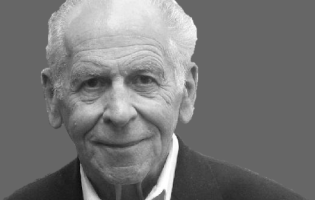“It is a mistake to pathologize life [to represent it as a disease]. All of us get angry, sad, depressed, overjoyed, and excited at times. There are times that any of us might lose control of any of these emotions with the challenges that life presents.
“Unfortunately, losing one’s temper in public might earn a person a stay in a psychiatric hospital. Anger, especially, is not tolerated inside the psychiatric department of a hospital. It can be diagnosed as “dysphoria” [unpleasant emotion, agitated, depressed], “hypomania” [speeded up, agitated behavior], or a “personality disorder.” The patient — adolescent and adult alike — can be disciplined with restraints, isolation, and involuntary medications.
“Isolation and restraints are legally allowed ONLY when the patient is threatening others or viewed as a danger to himself. However, as a former psychiatric nurse, I have witnessed these methods used for reasons other than safety. I have seen them used to discipline a patient for his temper or simply to gain control over him, even when there was no threat to anyone’s safety. They were used to break down the individual’s will so that he will comply with the system inside the psychiatric unit, which imposes a milieu structure [a structured environment] with medications prescribed for questionable diagnoses.
“Anger is in itself not a disease. It is a symptom that something is not right. Anger can escalate when it is not listened to.
“While working one evening a few years ago in a small Colorado psychiatric inpatient unit, I was asked by our staff psychiatrist if I thought a 16-year-old boy there had “bipolar disorder.” The adolescent had expressed anger toward his mother, who was continuing to date a man who had literally beaten the boy up.
“Recognizing that this young patient had a lot reason to be angry, I asked the doctor why he thought the boy had “bipolar disorder.” The doctor explained that the patient’s mother had reported an increase in the boy’s appetite the week before, when he had an extra chili dog for dinner. The boy then went outdoors to play basketball with his friends. The doctor surmised that these two occurrences of normal behavior must be interpreted as “mania” because they were not typical for this boy.
“As the doctor was writing out prescriptions for three psychiatric medications, including an antipsychotic drug, I voiced my opinion that perhaps this boy’s behavior might be normal or just a sign of getting well. The doctor instructed me to observe him over the weekend for unusual behaviors and symptoms.
“Later that night, as I was passing out bedtime medications, I found myself with an antipsychotic medication in my hand with a physician’s order to give it to this boy — a child who was not mentally ill.
“My license said I had to give it. I left the psychiatric setting a few months later. Unfortunately, this scenario is all too common in psychiatric facilities.
“What is needed is empathic [with empathy] listening, understanding, validation and acceptance to feel what we need to. In my experience, I found that acceptance and caring about how my patient felt was always calming. A therapeutic conversation could then take place. Empathic listening and validation are key to healing.”
–Colorado R.N., a former psychiatric nurse






